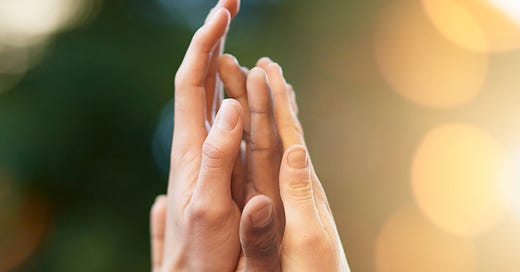We All Have Power
"The most common way people give up their power is by thinking they don’t have any." — Alice Walker
Hey friends, I wrote this piece on power back in 2022. Unfortunately, it is even more relevant today so I’m sharing it again.
In case you missed it, the next Purpose Clinic will be on the 13th May on the topic of Purpose as Protest. More details and link to register here: The Purpose Clinic™ 13th May 2025 'Purpose as Protest'
‘Power’ is a word that has come up in a lot of my conversations these past few months. I was asked about it while speaking at an event and, most recently, it came up in conversations with two different sets of friends. What struck me about all of these conversations was that people were not talking about having power, but about feeling disempowered or struggling to accept the idea that they had any power.
Power can scare people. I see why. There are so many bad examples of power in the world today: primarily aggressive power and the use of power for personal gain. We shy away from power because we know that we don’t want to embody that version. But if the rest of us reject even the notion of power and don’t take the opportunity to demonstrate power in a better way, what will we be left with: Just one dangerous archetype of power in the world.
The word power comes from the Latin ‘potere’: to be able. Accepting that you have power is about acknowledging the agency you have in your life (and the world). One of the reasons we don’t like to accept that we have power is that there are consequences to acknowledging this agency. The primary consequence is that we can no longer pretend to be disempowered. Power is not the problem. We all have power. The problem is deciding what we will do with it. We get to choose to be the example of what power can look like in the world. To demonstrate that power can be positive.
As Hozier proclaimed in the song Nina Cried Power:
‘It’s not the song, it is the singing’
Some years ago, when I was researching the topic of authenticity, something that caught my eye was a lesser-known relative of the word authentic. The ancient Greek word 'authentein' means to ‘exercise power or usurp authority’. The very idea of authenticity is that you have power. Authenticity involves acknowledging that you have power over yourself, your choices, and how you allow yourself to be used in the world.
Authenticity is not an easy choice. When you embrace the authority you have over yourself and your life, it means taking a stand for what you believe in. A decision to be less malleable. And with that will come discomfort for both you and others. As Professor Stephen Joseph notes in his book Authentic: ‘Authenticity is a dangerous idea. When people are authentic, they can be awkward, questioning of the status quo, and reluctant to be pawns for someone else’.
In simpler terms, they are quietly powerful.
Power is not the problem. We all have power to some degree. Who we become, how we live, and what we do with our time and talents is all powerful. We get to choose what we do with that.




